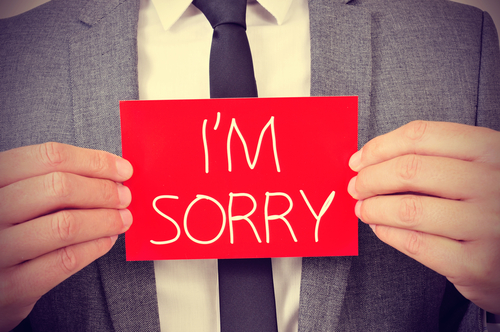Law firm websites need to step up their game for Google | Dodging spammers while using autoreply

Law firm websites that focus on keywords rather than quality content are now losing the SEO battle, the Colorado Bar Association’s SOLO in COLO writes. New Google algorithms mean that firms need to publish original, meaningful content on a regular basis.
“Law-firm sites that regularly showed up on page one now find themselves on page 20,” Sara Downey Robinson said at last month’s meeting of the Rocky Mountain Chapter of the Legal Marketing Association. “Since searchers rarely go beyond the second page of results in an online search, this is a real problem.”
Now, sites with “keyword ‘stuffing’” are marked as spam, and low-quality content, thin content and duplicate content are penalized.
The SOLO in COLO post also says that “each item of posted content should contain a call to action—some way for the user to interact with the site so that the firm can capture data.” SEO aside, though, LexBlog’s Kevin O’Keefe has previously disagreed with this sentiment. “Look at pieces in business journals, reviews, and publications,” O’Keefe wrote. “Look at insight from doctors, engineers, professors, and commentators in these publications. You don’t see a ‘call me for this or that’ at the bottom. It’s just not done. Why accept that you and your blog posts are any less authoritative than pieces published by these folks?”
Master your Outlook
The trouble with using an autoreply message when you’re out of the office is that it lets spammers know your email address is valid, blogger Deborah Savadra writes at Lawyerist.
But those with Microsoft Outlook can use rules to auto-forward messages from certain clients to certain co-workers who will be handling the matters for you. “As long as you can specify the email addresses (or even the email domains) of those whose messages you want handling your absence, Automatic Reply Rules will help ensure they get the attention they need without compromising your security.”
You can also set up your Outlook so only others within your organization will get the out-of-office autoreply. Some Outlook setups also “allow you to set an automatic reply to people who are outside your firm but only if their email address is found in your Outlook Contacts list.”
Patent cases getting their due?
Even though the U.S. Supreme Court is granting certiorari on an “extraordinary” number of patent cases, University of Iowa law professor Jason Rantanen wonders at Patently-O if they’re being given short shrift.
“None of its patent law opinions this term were more than 14 pages long,” he wrote. And “even if opinion length really is meaningless in terms of opinion value (may be behind a paywall), however, the substantive content of these opinions is disappointing.”
Rantanen and University of Missouri law professor Dennis Crouch think the unanimous opinion in Limelight Technologies v. Akamai Technologies misunderstood the Federal Circuit holding in the underlying case.
“Perhaps this will be an instance where the court engages in post-issuance revision of its opinion,” Rantanen wrote.
Hat tip: Above the Law.
Psychologically committed?
Ad Law Access and Top Class Actions note a California class action case filed last week against the Gap alleging its sales filers are misleading.
“As an example, the plaintiff points to an in-store, on-rack ad displaying, ‘DRESSES $25,’ with the statement ‘SELECT STYLES. DISCOUNT TAKEN AT REGISTER.’ in the corner of the ad,” Kelley Drye & Warren’s Christie Grymes Thompson writes at Ad Law Access. “According to the plaintiff this failure results in consumers ‘psychologically committing’ to purchase the items before they realize that those items are not subject to the advertised sale.”
The suit alleges the Gap violates California’s unfair competition law, advertising law, Business and Professions Code and Consumer Legal Remedies Act, Top Class Actions reports and estimates that the total consumer injury—the amount that consumers overpaid—at around $10 million.




